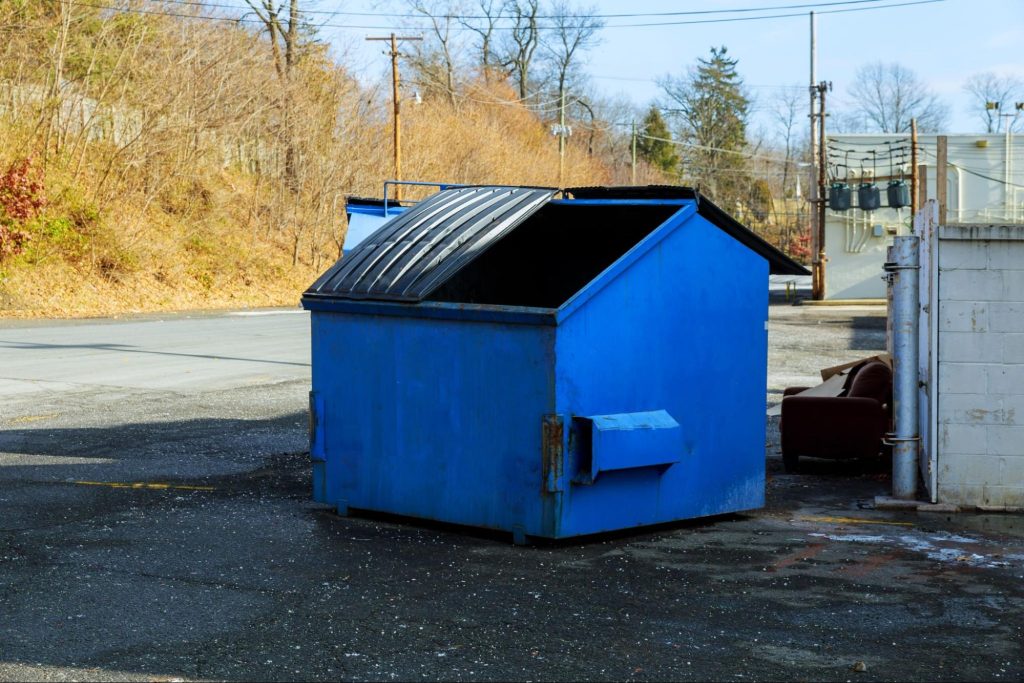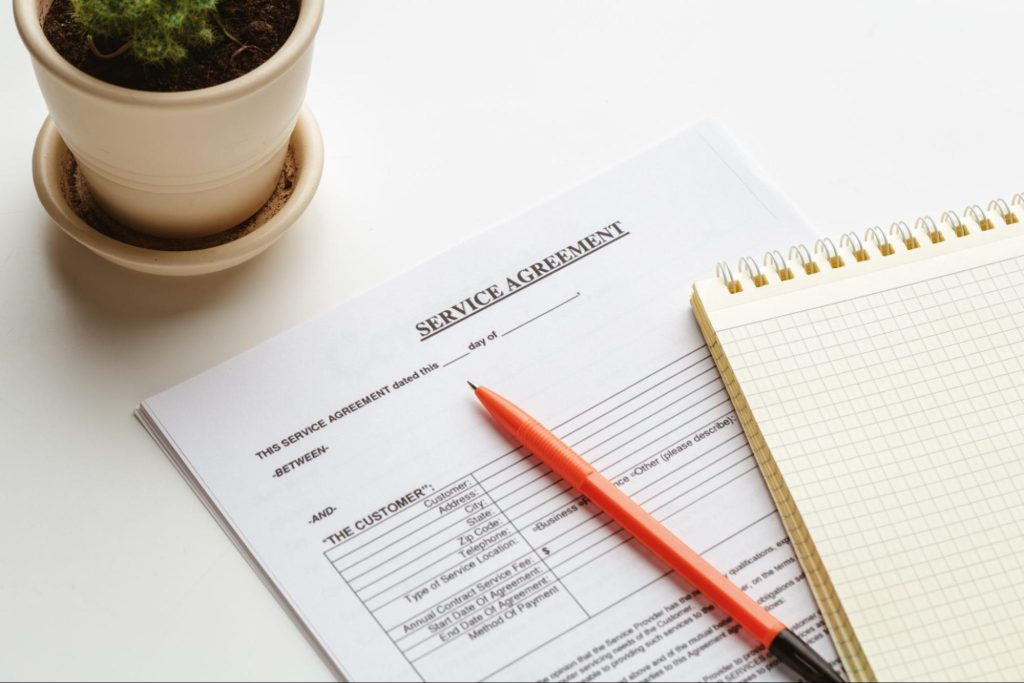Commercial waste builds up faster than most teams expect. It disrupts workflow, creates hazards, and drives up disposal costs. For businesses handling daily operations, renovations, or high-volume turnover, renting the right dumpster is more than a convenience; it’s a necessity. A well-matched rental ensures smooth operations and minimizes legal and safety risks.
Why Renting Dumpsters Matters for Businesses
Renting dumpsters helps businesses manage waste efficiently without straining daily operations. It also supports compliance, site safety, and cost control. Most commercial properties generate steady or seasonal waste that needs structured disposal. Dumpster rentals offer flexible options for both routine and one-time projects.
Daily Waste Handling Needs Reliable Disposal
Every business generates waste, including packaging, food scraps, and outdated inventory. Without a central solution, waste piles up and slows productivity. A designated dumpster keeps the workspace clean and professional. Consistent waste flow management benefits office buildings, restaurants, and retail stores. It also simplifies janitorial or maintenance tasks, which reduces labor strain. When waste is out of the way, teams focus on core work.
Avoids Fines and Stays Legally Compliant
Commercial waste must comply with local laws, zoning regulations, and health standards. Violations can result in citations, penalties, or even closure. Renting from a licensed dumpster provider ensures pickups and disposal align with regulations. Many cities require specific handling for recyclables, organic waste, or construction debris. A compliant rental strategy helps you avoid enforcement headaches. It also shows clients and partners that your operation is well-managed.
Improves Safety and Reduces Risk On-Site
Piled-up trash causes trip hazards, pest issues, and fire risks. Dumpsters placed strategically reduce exposure and help teams work safely. Clear pathways and designated disposal zones support OSHA compliance. Projects involving tools, chemicals, or heavy lifting benefit most from organized waste areas. When waste is removed efficiently, operations run smoothly and incidents decrease. Risk management starts with solid waste control.
Dumpster Types for Commercial Use
Different dumpsters serve different commercial needs. Understanding each type helps match size, service, and capacity with your site requirements. Choosing the wrong type often leads to overflow, delays, or cost spikes. The right fit saves time and keeps projects on schedule.
Front-Load Dumpsters for Consistent Waste
Front-load dumpsters stay on-site and are serviced on a set schedule. They range from two to eight yards in capacity and work well for steady, predictable waste streams. Businesses like cafes, clinics, schools, and strip malls use them for regular trash and recycling. Their closed lids reduce odor and deter pests. Scheduled pickups prevent overflow, even in high-traffic periods. For permanent waste solutions, front-load rentals are dependable and low-hassle.
Roll-Off Dumpsters for Projects and Heavy Debris
Roll-off dumpsters are open-topped and delivered for short-term use. They’re common on construction sites, demo jobs, and seasonal property cleanouts. These containers come in ten, 20, 30, and 40 yards. Large commercial properties also use them for remodeling or facility upgrades. Their design allows easy loading from ground level or machinery. Once full, they’re hauled away and replaced as needed.
Compactors for High-Volume or Dense Waste
Compactor dumpsters compress trash before hauling, reducing pickup frequency, minimizing odor, and conserving space. Malls, grocery stores, hotels, and warehouses benefit from this setup. Compactors can hold more trash without requiring additional pickups, thereby lowering operational costs. They also improve sanitation and deter rodents. These dumpsters are ideal for businesses with steady, bulky waste.

Specialized Bins for Unique Materials
Some industries handle waste that requires specialized handling. Electronics, food waste, pallets, scrap metal, and hazardous materials fall into this category. E-waste bins help IT departments and electronics retailers comply with recycling laws. Food waste bins in restaurants and food processing plants comply with health codes. Specialty rentals follow material-specific rules and often require permits or documentation. For niche industries, tailored containers ensure compliance and efficiency.
What to Consider Before Renting a Dumpster
Before renting, businesses should assess more than just size. Waste type, location layout, service timing, and permit rules also matter. Thinking through logistics up front avoids complications once the dumpster arrives and prevents unnecessary rental extensions or fines.
Know What You’re Throwing Away
Different materials require different dumpster types. Standard trash, recyclables, and construction waste have their own handling rules. Some materials, like tires, batteries, or chemicals, are restricted. A basic waste audit helps determine the volume and type of waste. Review the disposal guidelines provided by your city or landlord to avoid contract violations. A clear picture of your waste stream helps avoid confusion later.
Space, Site Access, and Clearance Matter
A dumpster requires a flat surface, sufficient clearance, and access for a truck. Alleyways, tight parking lots, or sloped driveways may create delivery issues. Before booking, walk your site to check overhead wires, gates, or obstructions. Placement should also consider daily business flow; it shouldn’t block loading zones or fire exits. Some cities require a temporary permit for placing items on the curb. Planning avoids service delays or penalties.
Match Pickup Schedules to Your Business Needs
Waste volume fluctuates with season, traffic, or project phases. Regular pickups are suitable for restaurants or offices, while construction sites require flexible hauling. Long-term rentals should adjust service frequency to avoid overflow. Missed pickups can create backlogs and health violations. Ask your provider about adjusting schedules during peak periods. Staying ahead of your waste cycle keeps everything moving smoothly.
Commercial Dumpster Rental Costs and Pricing Factors
Dumpster rental costs for businesses depend on several factors: size, location, duration, and type of waste. While base rates give a starting point, most final prices include extra fees based on usage. Businesses that understand these cost factors can better budget and avoid surprises. Knowing what to expect upfront leads to more brilliant, more confident rental decisions.
How Dumpster Size and Waste Weight Affect Pricing
Dumpster rental pricing varies based on several factors, including size and weight, and should only be used as a general reference. For example, a small two-yard front-load bin might cost under $150 per month, while a 40-yard roll-off could reach $600 or more per haul. These figures depend heavily on location, material type, and the frequency of service. Heavier loads, such as concrete or roofing materials, typically increase the total due to disposal site tipping fees. Some providers may offer flat rates, but overage charges often apply if the weight limits are exceeded. Always request an up-to-date quote to avoid assumptions and unexpected costs.
Location and Service Frequency Impact Total Costs
Your business location has a direct impact on rental pricing. Urban areas may involve higher delivery fees, stricter permit rules, or access limitations. Pickup frequency is another cost driver; daily or weekly service costs more than biweekly or on-demand pickup. High-traffic businesses, such as restaurants, often require tighter pickup schedules to prevent overflow. Also, remote locations may incur extra transportation costs. Factoring these in keeps your quote accurate from the start.
Extra Fees for Overage, Permits, and Restricted Waste
Exceeding the weight limit will result in additional charges. Overage fees can range widely depending on the material type and disposal site. You may also need a temporary permit if your dumpster is located on public property, such as sidewalks or streets. These permits often incur additional costs and require planning. Some materials, such as electronics, tires, or hazardous waste, come with their own disposal fees. Always confirm what’s allowed and what costs extra before finalizing your rental.

Why Reliable Dumpster Providers Are Worth the Cost
Not all dumpster rentals deliver the same value. Low-cost vendors may miss delivery windows or skip pickups, causing delays and compliance issues. A dependable provider offers transparent pricing, flexible service, and responsive support. It reduces downtime and ensures your operation stays on track. Many reputable companies also provide tools such as usage tracking and waste reports. That level of service saves money in the long term by avoiding disruptions and unexpected charges.
Smart Practices for Managing Dumpster Rentals
Dumpsters work best when they’re used correctly. Even a great rental plan fails if staff misuse bins or ignore guidelines. Establishing smart habits ensures your site remains clean, compliant, and cost-efficient. A little planning up front avoids big problems later.
Train Your Team to Use Dumpsters Properly
Staff need to know what items go in each bin and what items are excluded. Training should cover recyclable materials, weight limits, and safety basics. Posting signs near dumpsters helps reinforce these rules on a daily basis. Assigning one person to oversee usage can reduce contamination and avoid overfilling. Improper use increases pickup needs and costs. Clear expectations prevent service issues and boost efficiency.
Monitor Dumpster Use to Adjust Service Needs
Track how fast your bins fill up. If they’re overflowing before pickup, consider increasing the frequency or size. If they’re mostly empty, reduce pickups to save money. Dumpster providers can offer usage data or adjust routes based on trends. Staying flexible ensures efficient waste management. It also avoids emergency pickups or last-minute swaps.
Renting Dumpsters for Industry-Specific Needs
Every industry generates different waste. Dumpsters must match not just volume, but also material type and site dynamics. Industry-specific rentals support operations without disrupting compliance or safety.
Construction and Demolition Debris Management
Construction generates significant amounts of waste, including drywall, wood, tile, and insulation. Roll-off dumpsters handle this volume without frequent swaps. They’re delivered on demand and hauled away as each project phase comes to an end. Construction sites also benefit from metal or wood recycling bins. Keeping materials separated saves on disposal costs. For heavy loads, select reinforced containers that are rated for their weight capacity.
Office, Warehouse, and Retail Cleanouts
Waste accumulates quickly when businesses relocate, renovate, or dispose of outdated stock. Old furniture, paper files, electronics, and fixtures all need disposal. Short-term roll-offs simplify the job and speed up cleanup. E-waste must be separated under EPA rules. Scheduling during off-hours prevents customer disruption. These projects often need tight pickup windows and fast delivery.
Food, Hospitality, and Grocery Waste
Food-related businesses create organic waste, packaging, and expired products daily. Front-load dumpsters with sealed lids control odor and pests. Compactors also help reduce the number of hauls. Restaurants and grocery chains need more frequent service during holidays or promotions. Some states require food waste to be separated or composted. Working with a provider who understands these rules is essential.
Choose Dumpster Rentals That Scale With Your Growth
Every delay in handling waste correctly costs time, money, and control. A dependable dumpster rental doesn’t just clear space; it sharpens your operations. Select a partner that aligns with your pace, waste flow, and industry requirements. The correct container at the right time changes everything behind the scenes. Waste isn’t just trash; it’s a process, and innovative businesses own their process from start to finish.
Want more guidance on waste management and dumpster rentals? Visit the Top Dog Waste Solutions blog for straightforward advice that works..








